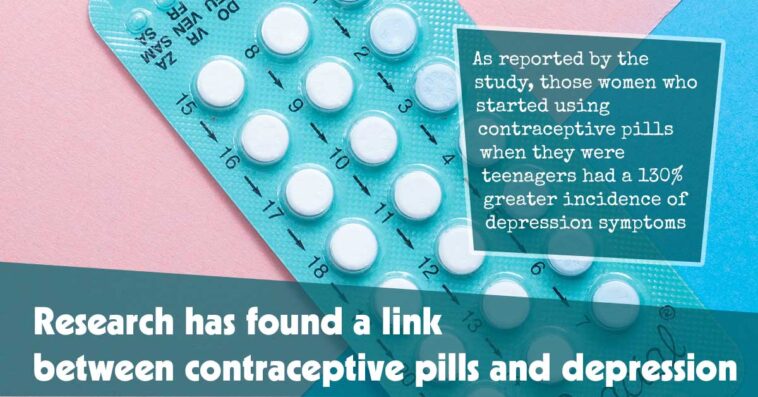Study Identifies Connection Between Contraceptive Pills and Depression
From a global standpoint, depression is the leading cause of illness and disability worldwide. Over 264 million individuals are affected and approximately 15% of men and 25% of women will need professional assistance for depression at some point during their lives.
Contraceptive pills have long been discussed as having potential negative ramifications on mental health and could potentially contribute to depression, though no clear-cut research findings exist yet. Many women have decided to stop taking contraceptives as a result of their impact on mood; however, study results remain inconclusive.
For this study, over 250,000 women from UK Biobank were tracked from birth through menopause for this research project. Data collection included contraceptive pill usage and when depression symptoms first surfaced without receiving a formal diagnosis.
Progestogen and estrogen-containing combined contraceptive pills were examined. Progestogen is a compound similar to progesterone hormone that prevents ovulation while thickening cervical mucus to keep sperm out of the uterus; estrogen helps thin out uterine lining to stop fertilized eggs implanting successfully.
Contraceptives offer many advantages for women; however, medical professionals and individuals should be informed about any adverse side effects found through research studies such as this one.
As indicated by this study, women who began using contraceptive pills when they were teenagers experienced 130% greater incidences of depression symptoms while their adult users increased by 92%.
Contraceptive pills’ powerful influence on teenagers could be explained by puberty-related hormonal fluctuations. Women of this age group tend to respond better than other age groups to hormonal shifts as well as life experiences due to having already undergone significant hormonal shifts themselves.
After two years, women who continued taking contraceptive pills saw a reduction in depression incidence; this trend wasn’t observed with teenagers using them however; even after stopping use, teenage users still experienced an increase in depression incidence, something not observed among adult users of contraceptive pills.
External hormones tend to be tolerated well by most women without adverse side effects; hence, combined contraceptive pills remain a viable choice for many.
Contraceptive pills offer women an effective means of preventing unplanned pregnancies as well as illnesses affecting women, such as uterine and ovarian cancer. Unfortunately, they may increase depression risk.
The results of the study highlight a need for greater awareness of potential associations between various body systems, including use of contraceptive pills and depression. Furthermore, women considering contraception pill usage must be made aware of any possible depression risks caused by taking such medication as side-effects.
As this study only assessed combined contraceptive pills, no definitive conclusions can be drawn regarding alternative methods like contraceptive patches, mini pills, rods, vaginal rings or hormonal spirals.
